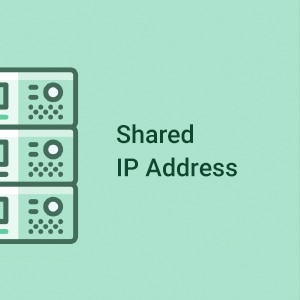VPN services assign you different types of IP addresses when you connect through and access the internet. An IP address is a unique numerical identifier assigned to any devices connected to the internet – used for communication purposes.
There are many types of IP addresses, but most VPN services offer two major types; Dedicated and Shared IP addresses
 Dedicated IP address
Dedicated IP address
A dedicated IP address, as the word suggests, is an IP address that is only exclusively assigned to the one used by the VPN service. This IP doesn’t change unless the user request for a new one. Mostly, this IP looks like a regular home IP address. Dedicated IPs are used for security purposes especially when accessing sites that only white list one IP address and you can be blocked if you access the sites using another IP.
 Shared IP address
Shared IP address
A shared IP address is the exact opposite of a dedicated IP address. This is the IP address most subscribers of a VPN service are assigned when they connect to the internet; many users are assigned the same IP -they share the same IP address when accessing the internet via the VPN. Shared IP addresses are best for privacy as it is hard to track the activities of an individual. Hence users get anonymity.
Differences between Dedicated and Shared IP addresses
The key differences between these two types of IP addresses can be narrowed down to privacy and security. Dedicated IP addresses are used by people concerned about the security of certain services – some services only require the allowed IP address, and if a shared IP address is used, they can be blocked due to issues such as spam attacks. Hence you’ll have to verify your identity every time you access the services. Shared IP addresses offer more privacy as they are harder to track as compared to a dedicated IP address.
Advantages of a dedicated IP
- Same IP address – this is useful for services such as eBay, PayPal, and even Gmail. These services will reject your attempt to access their services if they detect a different IP address (this means a different geo-location). To proceed, you may be required to re-verify your account.
- Guaranteed access to IP-restricted networks – similar to the above services, corporates have mechanisms that prevent unauthorized access to their systems. A whitelist is usually implemented, and the best way to go about is by using one IP, Dedicated IP address.
- Faster speeds – dedicated IP addresses are not congested and usually offer great speeds as compared to shared IP addresses.
- No ‘bad neighbor’ effect – you’re only responsible for the activities you do online.
Disadvantages of dedicated IP
- Dedicated IPs are quite pricey as compared to shared IP addresses
- Dedicated IPs offer less privacy – using a dedicated IP always singles you out, you can be easily tracked.
Dedicated IPs are perfect for:
- Online streaming and gaming.
- Online banking and for services such as eBay and PayPal.
- Secure remote access.
Advantages of shared IP Addresses
- They are cheap compared to dedicated IPs – the cost of maintaining Shared IPs is cheap than that of dedicated IPs. Hence users also reap the benefits.
- Guarantees privacy and anonymity – It’s hard to track and single out a user in a shared IP address environment. This makes shared IPs great for doing activities that require privacy.
Disadvantages of shared IP addresses
- Bad Neighbor Effect – since most users share the same IP address, you don’t know what activities other users are doing online. They might decide to engage in illegal activities. Using shared IP with services such as Google we’ll seem like spam attacks, and you’ll be required to re-verify your account.
- Shared IP addresses are easily blacklisted and blocked due to the bad neighbor effect.
- Prone to hacking/spoofing attempts.
Shared IPs are perfect for:
- Online streaming.
- Downloading torrents.
- Unblocking geo-restricted content.

 Dedicated IP address
Dedicated IP address Shared IP address
Shared IP address

